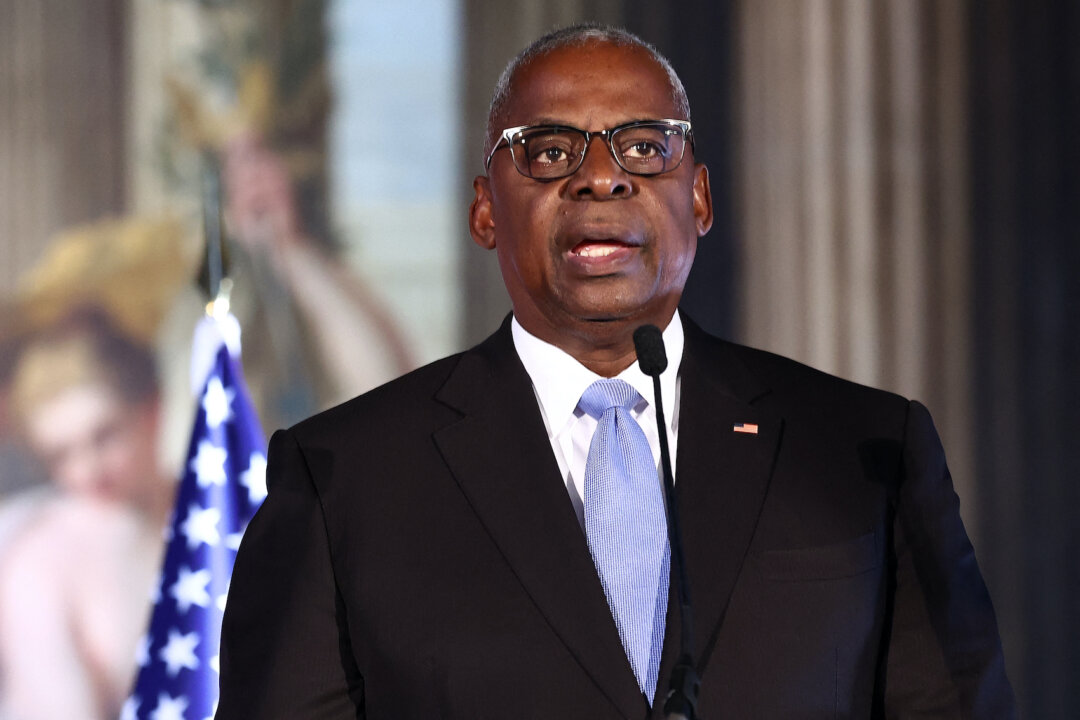Austin said the U.S. government will provide $4.9 million to support Fiji’s military modernization, pending congressional approval.
The United States and Fiji have started negotiations on an agreement that will facilitate “military-to-military engagements” between the two nations, U.S. Defense Secretary Lloyd Austin said on Nov. 22.
Once finalized, the deal, dubbed a Status of Forces Agreement (SOFA), will expand U.S.-Fiji defense cooperation through “increased exercises” between their militaries, according to the Pentagon chief.
Austin made the remarks following a meeting with Fijian Prime Minister Sitiveni Rabuka that same day. Austin’s visit marked the first-ever by a U.S. defense secretary to the Pacific island nation.
The SOFA is a legal pact establishing the terms that American troops are allowed to operate in a foreign country.
Speaking to reporters in Fiji, Austin said the SOFA will enable American troops to “deploy and re-deploy forces” in support of Fiji and train with the Fijian army on “a very routine basis.”
“I look for training rotations where possible to be conducted,” he said.
Austin added that there was “no notion” of establishing a permanent U.S. military base in Fiji.
The two nations also signed a deal to bolster bilateral logistics cooperation, enabling the United States to transfer fuel and medical supplies to Fiji in emergencies.
Austin said the U.S. government would also provide $4.9 million in foreign military financing to support Fiji’s military modernization, which is pending approval from Congress, according to a Pentagon fact sheet.
“The Indo-Pacific is our priority theater,” the Pentagon chief said. “And strengthening our partnerships with Fiji and other Pacific island countries is vital to a free and open Indo-Pacific.”
Rabuka described the United States as “one of our longest-standing defense partners” and said his nation looked forward to continuing to work closely with the U.S. government, including with the incoming Trump administration.
The Fijian leader said that Austin’s visit marked “a historic moment” in the U.S.-Fiji security ties.
“We all pray that it’s not an indication that we are looking at some dangerous years ahead,” he told reporters. “We are here to talk about peace and how we guard and protect and promote that peace.”
Geopolitical competition in the Pacific region has intensified since China struck a military deal last year with the Solomon Islands that Pacific nations are concerned could allow the Chinese Communist Party (CCP) regime to station its troops and weapons there.
In March, the Fijian government ordered the removal of Chinese officers from Fiji, citing differences in legal systems and policing methods, but maintained a police cooperation agreement with the CCP.
The police cooperation pact was part of the memorandum of understanding signed between Fiji and China’s Ministry of Public Security in 2011, which includes the training of Fijian police officers in China and the secondment of senior Chinese police personnel in Fiji.
Nina Nguyen contributed to this report.

